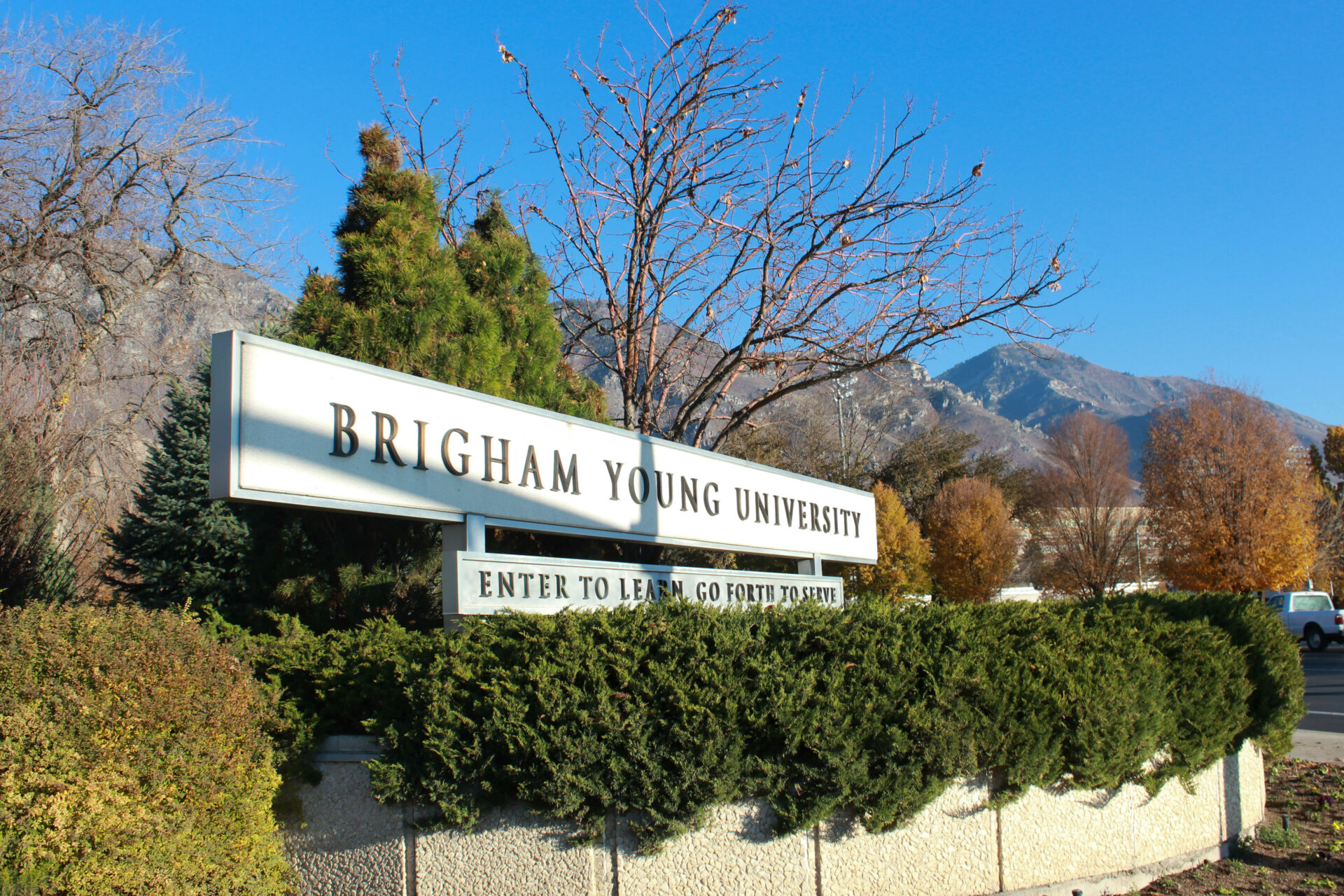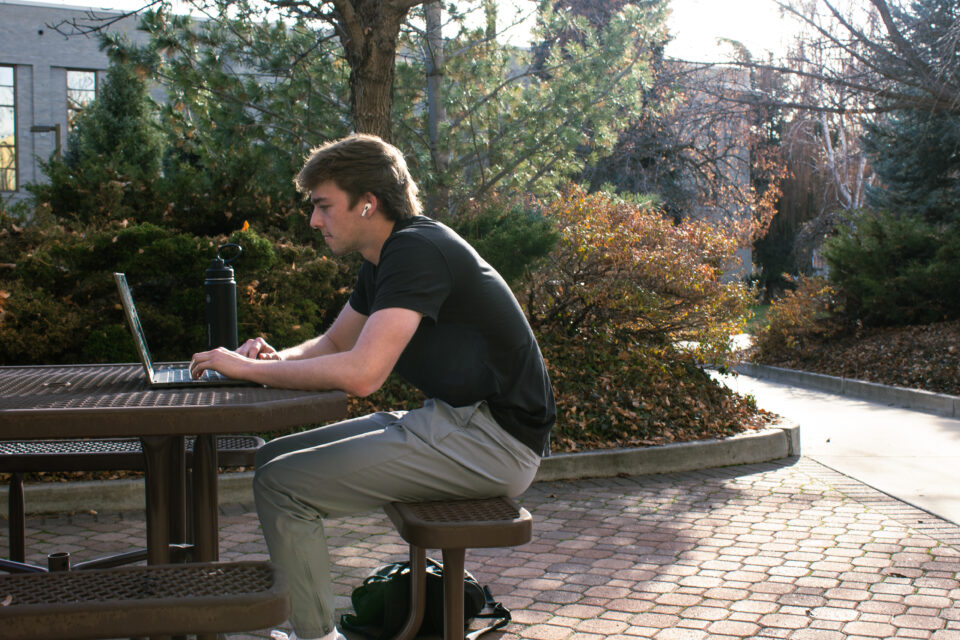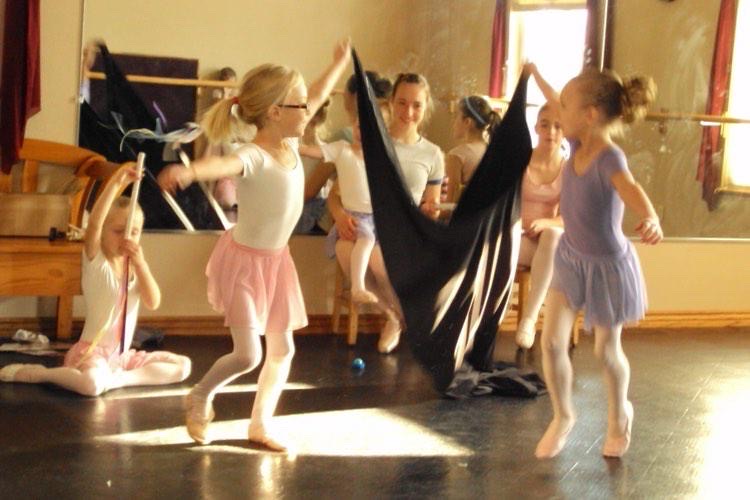As BYU strives to follow its AIMS and admit well-rounded students, formerly homeschooled students are bringing their smarts and secrets of a successful homeschooling experience to the university.

BYU does not require ACT or SAT scores “as of spring of 2021 through 2026,” according to the university’s Enrollment Services website. However, the university still recommends aspiring BYU students engage in rigorous coursework like dual credit classes and extracurricular activities. All of BYU’s specific recommendations can be found on the Enrollment Services website.

Many people stereotype those homeschooled as being antisocial and closed-minded, according to BYU student Alexander Henage.
Henage, a BYU freshman who completed homeschooling his whole K-12 experience in Riverton, Utah, said a lot of homeschooling stereotypes can be true, but only when certain factors such as parent and community involvement are absent.
“Homeschooling is unstructured and there is room for the stereotypes of laziness and awkwardness. It’s all about the environment you grew up in, were you self-motivated, were you involved in the community, and were your parents involved in your education,” Henage said.
Community involvement and extracurricular activities
Henage said he enjoyed the free time homeschooling brought him and how the flexibility allowed him to participate in extracurriculars that helped prepare him for college. Throughout high school, Henage was involved in debates for the International Public Policy Forum and would compete with teams from around the world.

The underlying motivation for community involvement is parent facilitation, according to Ella Mikulecky, a junior studying English. Mikulecky’s family moved to the United Arab Emirates when she was in middle school.
After finding out there were limited private schooling options available for her five siblings, Mikulecky’s mother decided homeschooling was the best option.
The reliance on parental teaching for Mikulecky’s family was imperative, Mikulecky said.
“There wasn’t a huge infrastructure for homeschooling in the UAE … so it was up to my parents to teach us subjects in the home and outsource unfamiliar subjects to other teachers in the UAE,” Mikulecky said.
Mikulecky said her mother outsourced English, sports and musical lessons to other teachers in the UAE.
“My homeschooling was successful because my mom fostered a love for learning in the home,” Mikulecky said.
When the Mikulecky family moved back to Utah, which Mikulecky describes as “a mecca of homeschool resources” in comparison to her UAE experience, her family decided to homeschool through high school.
Mikulecky said her high school experience was rigorous, with over seven classes a semester, extracurricular activities and community involvement.
“I was never in my house,” Mikulecky explained. “I would drive to Draper for my piano class, see a tutor for music, drive to Riverton for debate.”
William Baird, a junior studying civil engineering, was homeschooled all his life. He said he considers community togetherness and “looking for opportunities” particularly important when preparing for college.
Baird and his siblings were always involved in clubs and events from plays to robotics teams, he said, and he believes his parents took every opportunity to involve their children in the community during their homeschooling experience.
Parent involvement
According to Baird and Talitha Call, a sophomore studying math education, parent involvement is a crucial factor in college preparedness for homeschooled students.
While Call’s parents homeschooled her from grades K-8 in Spokane, Washington, Call was also involved in piano lessons and interacted with various homeschool groups and those in the community.
“I don’t know where I would be if my mom hadn’t involved us in so many groups…” Call said.
After being homeschooled throughout grades K-8, Call moved to a public high school and was eager to take on the extracurriculars her public high school had to offer.

At a young age, involvement in various extracurriculars like drama and music helped fully prepare her with the curiosity and confidence to compete in extracurriculars in high school, Call said.
As she reflects on her current BYU experience, Call said her homeschooling years gave her the tools to learn quickly and independently. Her independence and full high school participation have led her to a well-adjusted college experience.
“College doesn’t spoon-feed you like high school and public school does, it’s very much independent, which I feel homeschool fostered for me,” Call said.
Athena Kryzmowski, a freshman studying history, said her parents were very involved in her homeschool learning and social environment as a kid.
“My parents could gauge what level we were at and let us go at our own pace,” Kryzmowski said. “I was at the same level of education as my sister who was three years older than me.”
Kryzmowski’s homeschooling experience gave her the edge she needed to pursue college early in high school.
“I felt ahead in public high school … I was used to having things thrown at me and having to have them done super fast,” Kryzmowski said.
When junior year rolled around, Kryzmowski was eager to enroll in Snow College’s Dual Enrollment program to challenge herself and take advantage of their dance, music and sports classes.
Kryzmowski said getting outside of the “pack” is important when it comes to homeschoolers adjusting socially. She explained how homeschoolers who are not socialized and involved in the community are more likely to struggle to make friends.
“Even if we were kicking and screaming, my mom would make us go to dance class and tumbling and karate and soccer and … force us to get along with other kids our age, you know, even if we didn’t go to school with them,” Kryzmowski said.

Kryzmowski also believes homeschooling helped her become self-motivated and open-minded, she said.
“As we grew up, my parents encouraged us to form our own opinions, be more independent and do more things on our own,” she said.
Baird said his college preparedness for the civil engineering program at BYU wouldn’t have been possible without his parents fostering learning in the home.
“The biggest key to success is parents who care about your education,” Baird said.
Baird said his college preparedness for the civil engineering program at BYU wouldn’t have been possible without his parents fostering learning in the home. He said his love for the sciences and his path at BYU followed a love for learning and family support.
For more information about homeschooling in Utah, visit The Utah State Board of Education Website. For information on high school dual enrollment courses through BYU, visit the BYU Online High School Website.




